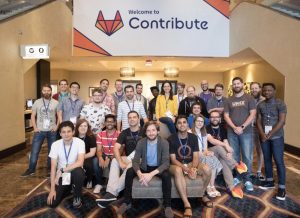GitLab has an agenda in motion and prides itself on maintaining its independence.
Founded in 2011 by Sid Sijbrandij and Dmitriy Zaporozhets, the San Francisco-based GitLab helps developers manage and distribute code in DevOps. By 2015, the company had its first big boost as a recipient of Y Combinator support, a Silicon Valley-based seed fund that gives startups all the tools they need to success, including connections, mentorship, and more. GitLab was in great company. AirBNB, Dropbox, Reddit, and Stripe are just some of the then-startups that passed though the Y Combinator system.
Today, GitLab is ready to move on in its next phase: going public. The company recently raised a $268 million Series E round, for a total of $426 million—bumping its valuation up to $2.75 billion—with backers like Two Sigma Investments, Alkeon Capital, Adage Capital Management, Altimeter Capital, Franklin Templeton, and more.
GitLab’s “public” agenda started churning last year when CFO Paul Machle told CEO Sijbrandij that the company should plan on going public. Soon the wheels were in motion—and full speed. The company’s target date to go public is November 18, 2020.
In a recent interview, Sijbrandij said that this timeframe gives the company a bit of lead time for the company as it decides how to go public—whether IPO or direct listing. Currently, the company is opting for a direct listing over an IPO, according to Sijbrandij.
Overall, GitLab prides itself on being transparent and has always been open with its community of users as it transitions to a commercial company. Despite being purchased by Microsoft in 2018 for $7.5 billion, Sijbrandij says the company still operates fairly independently. The company also operates fully remotely with 850 employees in more than 55 countries.
“Our ambition is to stay an independent company,” said Sijbrandij in a recent interview. “And that’s why we put out the ambition early to become a listed company. That’s not totally in our control as the majority of the company is owned by investors, but as long as we’re more positive about the future than the people around us, I think we can we have a shot at not getting acquired.”
























